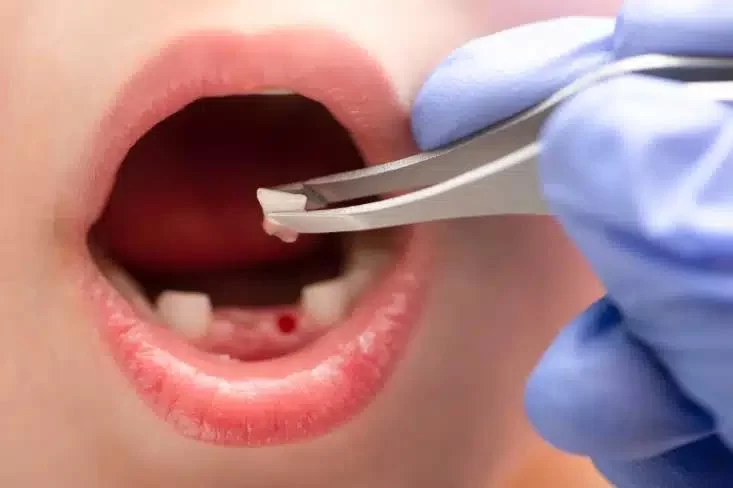
How to Prepare for a Dental Procedure
Visiting the dentist can be a nerve-wracking experience, especially when you know you’re about to undergo a dental procedure. As someone who has had their fair share of dental work done, I know that preparation is key to feeling confident and at ease when it's time for that chair-side procedure. Whether you’re getting a routine cleaning, a filling, or even more complex dental work, understanding how to prepare can make all the difference. Here’s what I’ve learned from my own experiences and how I now approach preparing for any dental procedure.
1. Understand the Procedure You're About to Have
The first step in preparing for any dental procedure is understanding exactly what’s going to happen. One of the most common mistakes I made early on was not asking enough questions about the procedure. I’d simply show up and let the dentist take care of things without fully knowing what to expect. This led to anxiety and discomfort, especially when surprises arose during the procedure.
Now, whenever I have a dental procedure scheduled, I make sure to ask my dentist to walk me through every step. From the anesthesia options to how long the procedure will take, having all the details gives me a sense of control and helps calm my nerves. Whether you’re having a simple cleaning or something more involved like a root canal, understanding what’s coming will make the process less intimidating.
2. Address Any Dental Anxiety Ahead of Time
Dentist visits are often associated with anxiety, and I am no stranger to this feeling. In fact, it wasn’t until I learned how to manage my dental anxiety that I started to look forward to appointments. The good news is there are several strategies you can use to make the experience much more pleasant.
One effective method is to communicate openly with your dentist about your fears. A good dentist will take your concerns seriously and may offer options like sedation dentistry or local anesthesia to ensure you remain comfortable throughout the procedure. In my case, I found that knowing I had these options available made a huge difference in my mental state.
Another tip I swear by is bringing a friend or family member with me. Having someone there to offer support helps me feel more at ease. Plus, they can help you focus on relaxing instead of worrying about the procedure ahead.
3. Follow Pre-Procedure Instructions Carefully
Before any procedure, your dentist will likely give you specific instructions to follow. These might include things like fasting before a procedure or taking medication. It’s important to take these instructions seriously. For example, I once had a dental surgery where I was told to avoid eating for several hours prior to the procedure. I tried to disregard this advice thinking I could sneak in a snack, but I quickly learned that this could lead to complications during the procedure, and I ended up regretting not following the guidelines.
Always make sure to clarify any pre-procedure instructions with your dentist. They are there to ensure the procedure goes smoothly, and you should trust their advice. If you’re unsure about anything, ask—whether it’s about taking medications or what to eat and drink before your visit. These small details can significantly impact the success of your procedure and your recovery afterward.
4. Plan Your Transportation and Post-Procedure Care
Many dental procedures, especially those involving sedation or more invasive treatments, require you to have someone drive you to and from your appointment. It’s crucial to arrange transportation ahead of time, as driving yourself post-procedure can be unsafe due to lingering effects of sedation or discomfort.
After one of my dental surgeries, I learned the hard way that it’s always best to have someone drive you. The anesthesia left me feeling groggy, and I wasn’t able to focus or drive safely. This made the recovery process a bit more stressful than it needed to be.
In addition to transportation, make sure you understand what kind of post-procedure care you will need. Some procedures, like extractions or root canals, require specific aftercare to avoid infection or complications. I always ask my dentist for a detailed list of do’s and don’ts for the recovery period, which helps me feel more confident and prepared once the procedure is done.
5. Take Care of Your Oral Health Leading Up to the Procedure
Maintaining good oral hygiene leading up to a dental procedure is essential for ensuring everything goes smoothly. This means brushing and flossing regularly and paying extra attention to the areas that might be treated during your visit. I always make sure to thoroughly clean my teeth and gums, as this can help reduce the risk of infection and ensure my dentist has a clear view of the areas that need treatment.
If you're getting a more extensive procedure, like implants or crowns, make sure to follow any specific instructions about oral care. I’ve had procedures where my dentist recommended using a special mouthwash or avoiding certain foods right before the appointment, and these tips have helped me avoid any unnecessary delays or complications.
6. Consider Your Diet and Hydration
Your diet and hydration play an important role in your recovery process. For example, many people find that drinking plenty of water before their appointment helps keep them feeling hydrated and more comfortable during the procedure. Avoiding heavy meals before an appointment, especially for procedures involving sedation, can help reduce nausea and discomfort.
Personally, I’ve found that sticking to light, healthy meals leading up to a procedure helps my body feel more energized and ready for whatever comes. Avoiding caffeine and sugary foods is also a good idea, as these can affect your nerves and make it harder to relax before the procedure.
7. Wear Comfortable Clothing
On the day of your procedure, it’s important to dress comfortably. I’ve learned this the hard way—once, I showed up at the dentist’s office in tight clothes that weren’t very comfortable during the procedure. I was in the chair for a long time, and I realized that wearing loose, comfortable clothing would have made the experience much more relaxing.
Make sure to wear something that doesn’t restrict your movement, and avoid jewelry or accessories that could get in the way. Dressing for comfort will help you stay calm and at ease during the procedure.
8. Stay Positive and Relaxed
Finally, staying positive and relaxed can have a huge impact on how you feel before and after your dental procedure. I try to remind myself that my dentist is there to help me and that the procedure is an important step in maintaining my oral health. The more I focus on the benefits of the procedure—whether it’s improved function, better aesthetics, or relief from pain—the easier it is to manage my anxiety.
If you’re feeling nervous, take a few deep breaths, listen to calming music, or bring along a stress ball to squeeze during the appointment. Anything that helps calm your mind will make the procedure go more smoothly.







 Smile Obsession Dental4.0 (792 review)
Smile Obsession Dental4.0 (792 review) Dr. Krupa Parikh, DDS0.0 (0 review)
Dr. Krupa Parikh, DDS0.0 (0 review) Blum & Tinsley Dental Clinic | Norman5.0 (583 review)
Blum & Tinsley Dental Clinic | Norman5.0 (583 review) Warren C. Baine, DMD5.0 (36 review)
Warren C. Baine, DMD5.0 (36 review) Levin Marc DMD5.0 (3 review)
Levin Marc DMD5.0 (3 review) Charm Pediatric Dentistry, LLC4.0 (74 review)
Charm Pediatric Dentistry, LLC4.0 (74 review) The Importance of Oral Health Education During Pregnancy for a Healthy Pregnancy
The Importance of Oral Health Education During Pregnancy for a Healthy Pregnancy Best Tips for Brushing Your Teeth Properly for Healthy Gums: Essential Techniques for Oral Health
Best Tips for Brushing Your Teeth Properly for Healthy Gums: Essential Techniques for Oral Health Why Skipping Dental Checkups Can Lead to Bigger Oral Health Problems
Why Skipping Dental Checkups Can Lead to Bigger Oral Health Problems Advantages of Porcelain Dental Restorations
Advantages of Porcelain Dental Restorations How Can Diabetes Cause Tooth and Gum Problems? Preventing and Managing Oral Health Issues
How Can Diabetes Cause Tooth and Gum Problems? Preventing and Managing Oral Health Issues Healthy Habits for Promoting Good Oral Health and Hygiene: Tips for a Healthy Smile
Healthy Habits for Promoting Good Oral Health and Hygiene: Tips for a Healthy Smile